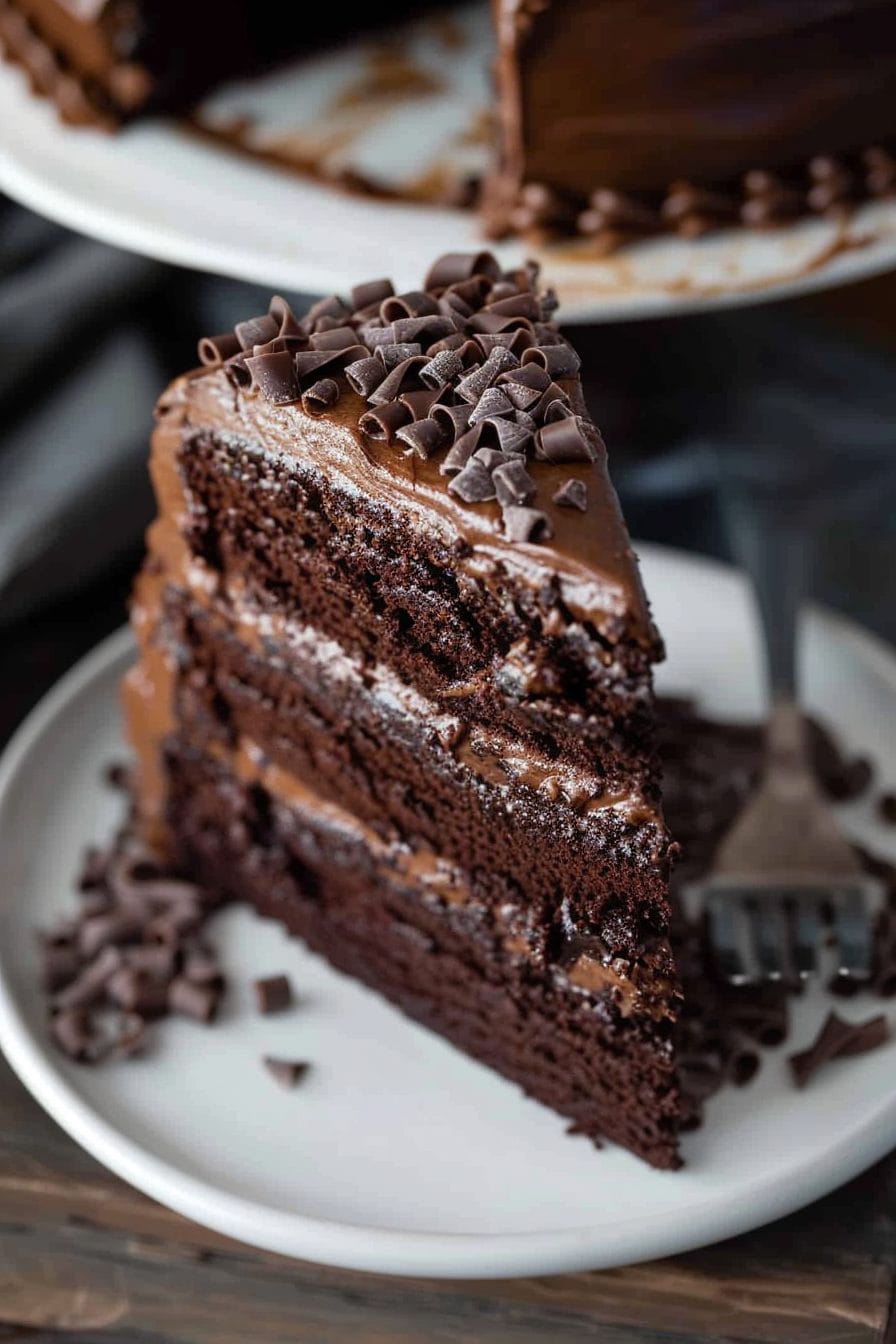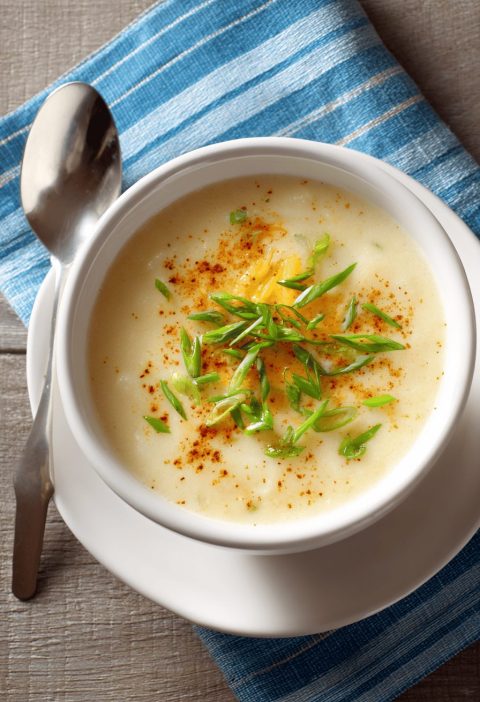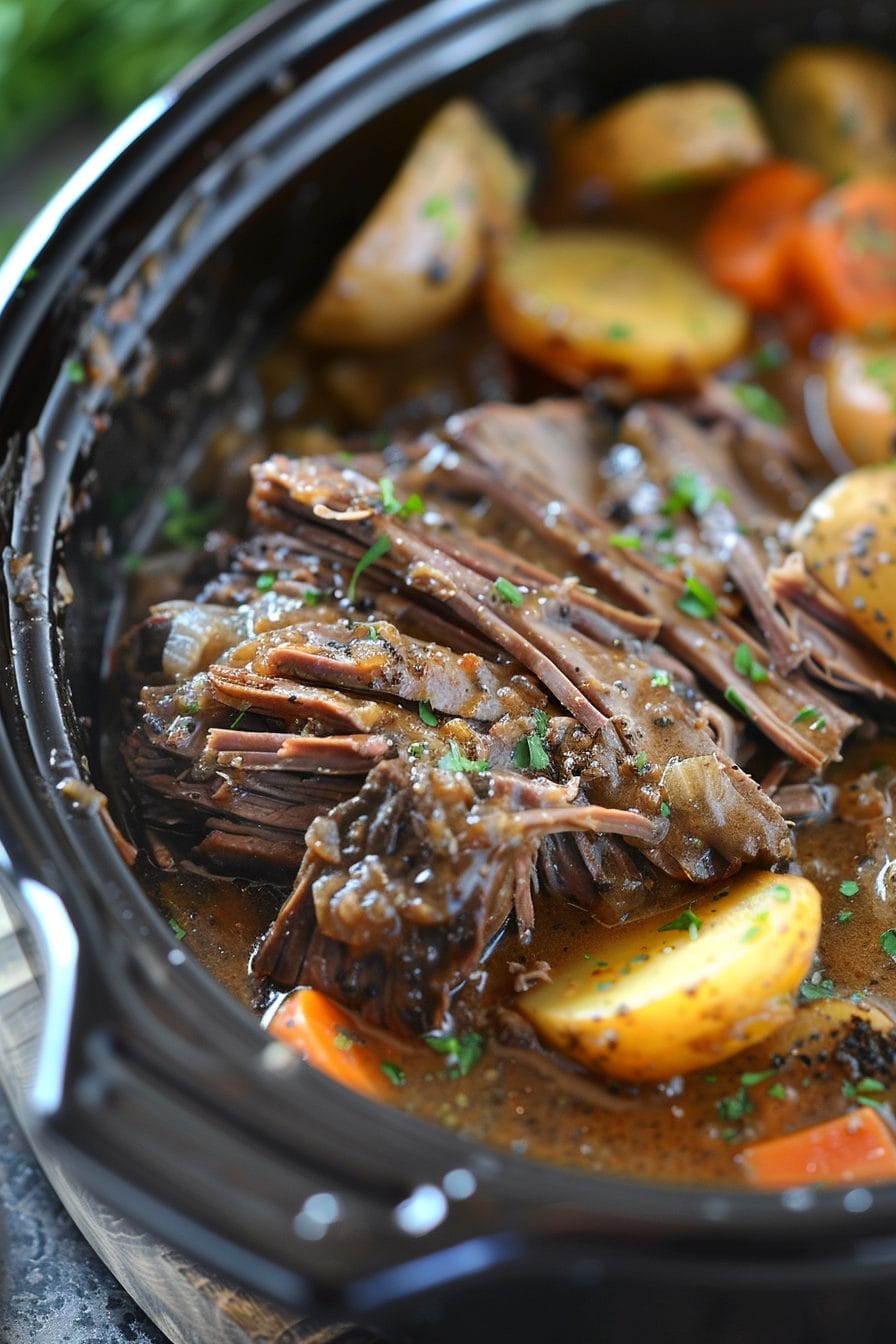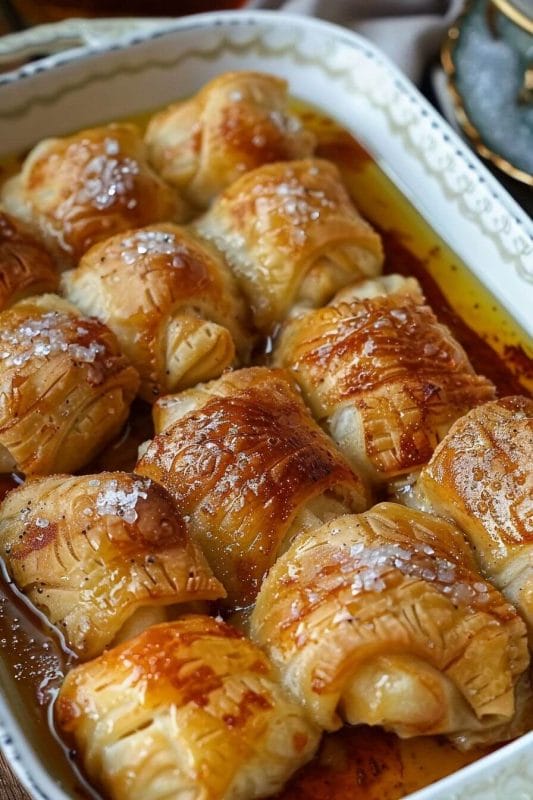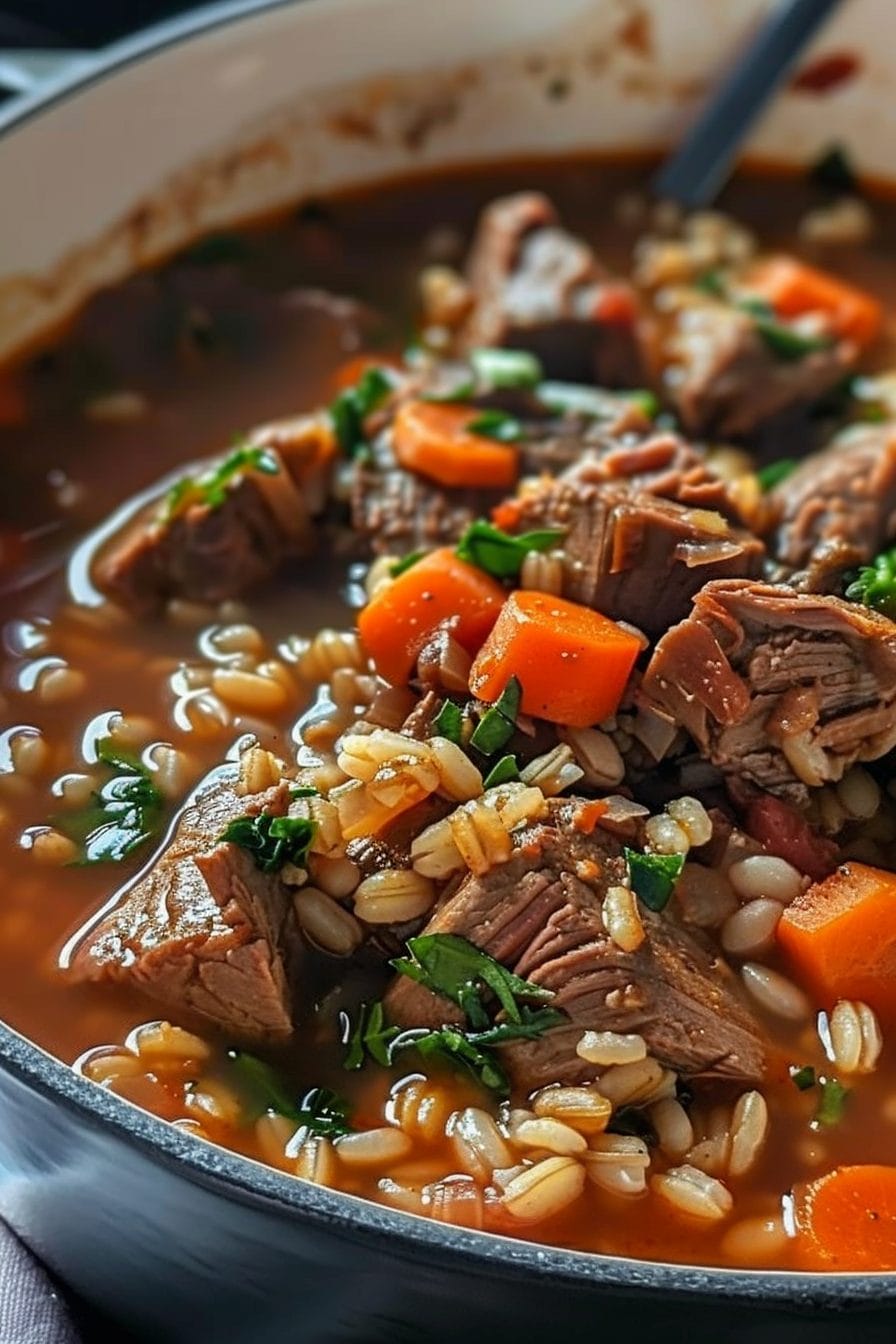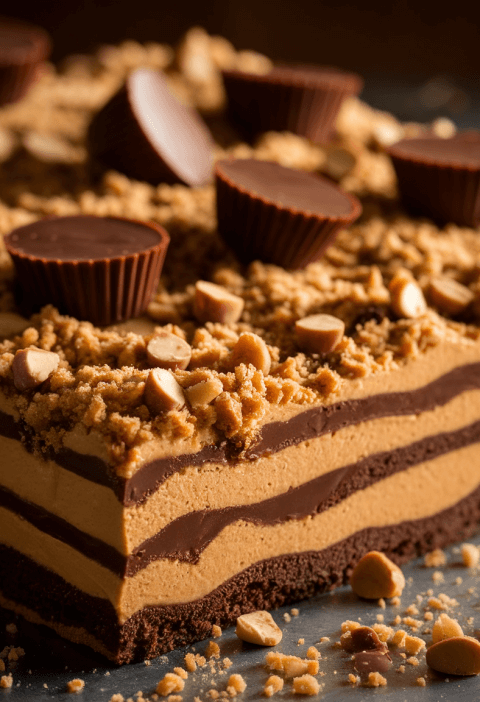Would you like to save this?
Ingredients
For the Cake:
1/2 cup butter
1 1/2 cups sugar
2 eggs
2 (1-oz) squares unsweetened chocolate, melted
2 cups sifted cake flour
1 teaspoon salt
1 cup buttermilk
1 teaspoon vanilla extract
1 teaspoon baking soda
1 tablespoon vinegar
For the Chocolate Frosting:
1/2 cup butter, softened
3 cups confectioners’ sugar
3 (1-oz) squares unsweetened chocolate, melted
1 teaspoon vanilla extract
Half-and-half (if necessary)
Instructions
Preparation
Preheat the Oven:
Start by preheating your oven to 350°F (175°C). Grease and flour two 9-inch round cake pans to prevent the cake from sticking. For extra assurance, line the bottom of the pans with parchment paper.
Making the Cake Batter
Cream the Butter and Sugar:
In a large mixing bowl or a standing mixer, cream 1/2 cup of butter until it becomes light and fluffy. This usually takes about 2-3 minutes. Gradually add 1 1/2 cups of sugar, continuing to beat until the mixture is creamy and well combined.
Add the Eggs: Add the eggs one at a time, beating well after each addition. This step ensures that the eggs are fully incorporated and the batter remains smooth.
Stir in Melted Chocolate: Melt the 2 squares of unsweetened chocolate and let it cool slightly. Stir the melted chocolate into the butter and sugar mixture until fully combined. The chocolate should be smooth and thoroughly mixed in.
Combining Dry and Wet Ingredients
Prepare the Dry Ingredients:
In a separate bowl, sift together 2 cups of cake flour and 1 teaspoon of salt. Sifting helps to aerate the flour and remove any lumps, ensuring a smooth batter.
Alternate Adding Buttermilk and Flour: Gradually add the sifted flour mixture to the chocolate mixture, alternating with 1 cup of buttermilk. Start and end with the dry ingredients. This technique helps to maintain the batter’s consistency and ensures all the ingredients are well blended.
Add Vanilla Extract: Stir in 1 teaspoon of vanilla extract. This adds a hint of sweetness and depth to the cake.
Activating the Leavening Agent
Prepare Baking Soda and Vinegar Mixture:
In a small bowl, dissolve 1 teaspoon of baking soda in 1 tablespoon of vinegar. This reaction creates bubbles and helps the cake rise. Slowly add this mixture to the cake batter, mixing just until blended. Be careful not to over-mix, as this can make the cake dense.
Baking the Cake
Pour and Bake:
Pour the batter evenly into the prepared cake pans. Smooth the tops with a spatula to ensure even baking. Place the pans in the preheated oven and bake for 30-35 minutes, or until a toothpick inserted into the center of the cakes comes out clean.
Cool the Cakes: Allow the cakes to cool in the pans for about 10 minutes. Then, carefully remove the cakes from the pans and transfer them to wire racks to cool completely before frosting.
Preparing the Chocolate Frosting
Cream the Butter:
In a large mixing bowl, cream 1/2 cup of softened butter until it is light and fluffy.
Add Confectioners’ Sugar: Gradually add 3 cups of confectioners’ sugar, 1/2 cup at a time, beating well between each addition. This helps to create a smooth and creamy frosting.
Stir in Melted Chocolate and Vanilla: Melt 3 squares of unsweetened chocolate and let it cool slightly. Stir the melted chocolate and 1 teaspoon of vanilla extract into the butter and sugar mixture until fully combined. If the frosting is too thick, thin it with 1-2 teaspoons of half-and-half, adding a little at a time until you reach the desired consistency.
Assembling the Cake
Frost the Cake:
Place one of the cooled cake layers on a serving plate. Spread a generous layer of frosting over the top. Place the second cake layer on top and spread the remaining frosting over the top and sides of the cake. Use a spatula to create a smooth or decorative finish.
Serving and Storing
Serve:
Once the cake is frosted, it’s ready to serve. Cut into slices and enjoy this rich, moist, and delicious old-fashioned chocolate and buttermilk cake.
Store: Store any leftover cake in an airtight container at room temperature for up to 3 days, or in the refrigerator for up to a week.
Variations and Substitutions
Nutty Variation:
Add 1/2 cup of chopped nuts, such as pecans or walnuts, to the batter for added texture and flavor.
Different Frosting: For a different flavor, try using a cream cheese frosting instead of chocolate. The tanginess of the cream cheese pairs wonderfully with the rich chocolate cake.
Gluten-Free Version: Substitute the cake flour with a gluten-free flour blend to make the cake suitable for those with gluten intolerance. Ensure the blend contains xanthan gum or add 1/2 teaspoon to the mix.
Lower Sugar: Reduce the sugar in the cake by using a sugar substitute suitable for baking, such as stevia or erythritol, in equivalent amounts.
Conclusion
This old-fashioned chocolate and buttermilk cake is a delightful dessert that brings back memories of home and family gatherings. The combination of rich chocolate and tangy buttermilk creates a cake that is both moist and flavorful, while the creamy chocolate frosting adds an extra layer of indulgence. With simple ingredients and straightforward steps, this recipe is accessible to both novice and experienced bakers. Whether you’re celebrating a special occasion or just want to treat yourself to a classic dessert, this cake is sure to satisfy. Enjoy the process of baking and sharing this delicious cake with your loved ones, creating new memories and traditions along the way.

